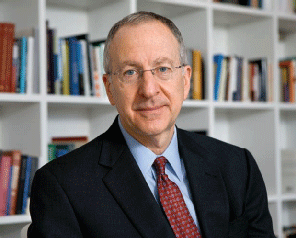The past ten months have been a time of ecstatic highs and tragic lows at Cornell. Who could have imagined the breadth of our athletic success, including women's and men's hockey, women's and men's polo, wrestling, gymnastics, fencing, and—of course—men's basketball, which made its NCAA Sweet Sixteen debut in March. We are now looking forward to my favorite spring event, Commencement, which is the campus's supreme affirmation of joy and optimism about the future.
Yet as we also look back on a difficult year, with an unusually large number of student suicides, there is a lesson we should learn and teach: we need to promote an ethic of connection and intervention and work in a more focused way to reduce one of the major public health risks to our young people, not just at Cornell but nationally.
 Suicide is the third most prevalent cause of death in teenagers and young adults, responsible for more fatalities than birth defects, infectious disease, cancer, and heart disease combined. Although college students experience a lower rate of suicide than others in their age group, the loss of even one life is one too many.
Suicide is the third most prevalent cause of death in teenagers and young adults, responsible for more fatalities than birth defects, infectious disease, cancer, and heart disease combined. Although college students experience a lower rate of suicide than others in their age group, the loss of even one life is one too many.
We live in a time of unrivaled and unrelenting connectivity, through Facebook, Twitter, and smart phones. Yet, despite—or because of—the new technology, it is too easy to stop connecting, in real time and in real life, face to face and heart to heart, with the people who are most important and most likely to be supportive: our families, friends, teachers, counselors. We need to make sure that our first instinct is to respond to challenges by seeking help, for ourselves and for them. As a father, faculty member, teacher, and administrator, and as a physician caring for young people with chronic disease, I have long been concerned about this major public health issue. I am convinced that we need a better understanding of the factors that lead to suicide and interventions that might prevent it.
On our college campuses, we need to forge more effective partnerships among students, parents, faculty, counselors, and administrators—partnerships that will allow us to identify and seek out students at risk and to react quickly and appropriately to those who seek help. In forging these partnerships, college leaders need to be less concerned about potential litigation related to privacy statutes, especially when a life might be at stake. Indeed, as Cornell's legal counsel has underscored, federal privacy laws have always permitted administrators to contact parents and others in a position to help students who pose a danger to themselves or others—and observations of a student's distressing behavior are not even "records" covered by privacy laws.
Since 2002, Cornell has put in place a comprehensive counseling and mental health program that educates faculty, staff, and students about how to spot those in distress and guide them toward help; these programs are considered national models. Gannett Health Services offers counseling and psychological services at the clinic and at walk-in locations around campus. A peer-counseling program called Empathy, Assistance, and Referral Services (EARS) uses highly trained students to provide confidential phone and in-person assistance to peers in distress.
Nonetheless, in view of the tragedies we've experienced this year, we have taken a comprehensive look at ourselves—our climate, our advising system, our clinical services, and our physical surroundings—and redoubled our efforts to be a caring community, making explicit our individual and collective responsibility to take care of ourselves and to assist others. Until we have a better understanding of the factors that lead to suicide and develop more effective preventive strategies, we need to return to the wisdom of novelist E. M. Forster: "Only connect! . . . Only connect the prose and the passion, and both will be exalted, and human love will be seen at its height. . . . Live in fragments no longer."
If there is anything students need to learn, it is this: It is a sign of intelligence and strength, maturity and compassion, to ask for help. If there is anything I have learned from the tragedies on our campus this year, it is this: Being a model caring community is very important, and of equal significance is engaging in an overdue national dialogue about suicide. All of us must make sure that young people learn how to overcome the turbulent ebbs and flows of adolescence and early adulthood to reap the full promise of a life fully lived.
— President David Skorton
david.skorton@cornell.edu


